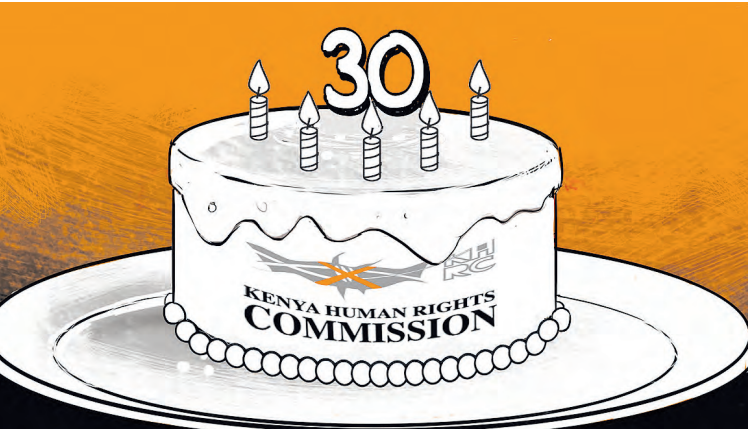
Today marks 30 years since the Kenya Human Rights Commission was registered in Kenya. Its radical and progressive founders— Maina Kiai, Makau Mutua, Willy Mutunga and Peter Kareithi—risked everything to challenge a brutal one-party state when they set up the organisation in the US in 1992.
Operating initially from Washington, DC, the founders built a human rights movement that dared to envision a Kenya free of oppression.
This happened in the shadows of dictator Daniel Moi’s authoritarian regime, where dissent was met with brutal force, including political assassination and detention without trial.
KHRC founders hoped to challenge Moi’s regime and deliver civic freedoms through collaboration and partnership with progressive actors, but they met suppression.
However, this did not stop the organisation and its founders from pushing for landmark advocacy that secured reparations for Mau Mau veterans.
Over the years, KHRC has worked with partners to dismantle the culture of impunity, most notably through its work on transitional justice for victims of Nyayo House torture and its daring exposés of state-sponsored violence.
Its campaigns for workers’ rights, corporate accountability and electoral justice touched the hearts and souls of many Kenyans.
Yet, even as KHRC marks three decades of human rights work in Kenya and beyond, the same challenges we faced in the 1990s are present today.
The current regime is a classic case study of why the war for a society free from oppression has yet to be won.
Bodies are turning up in quarries. Our young brothers and sisters are getting executed in cold blood for agitating for good governance and showing political dissent. Our pockets are emptier than we could ever imagine.
Our civic space is shrinking. State surveillance, arbitrary crackdowns and vilifi cation of NGOs as ‘foreign agents’ are everyday battles.
These realities demand recalibration. Public disillusionment with democratic gains has fed a narrative that human rights advocacy is elitist and out of touch—a dangerous misconception in a nation where systemic inequality persists.
KHRC’s survival and relevance hinge on its ability to confront these perceptions and the growing oppression.
As such, KHRC at 30 is a celebration and a challenge—a celebration of the battles we won and a challenge to cement these victories and win the war because justice is achieved only through determination.
The past three decades have shown what is possible when courage, strategy and solidarity converge.
However, the forces of oppression are ruthless and evolve in form and strategy. Therefore, KHRC must adapt and deepen its grassroots work.
Marginalised communities should not just be beneficiaries but partners in pushing for change. From Kibera’s informal settlements to remote rural outposts, KHRC must continue strengthening the voices of those whose realities it seeks to transform.
As the world changes, so must KHRC. The digital age presents both opportunities and threats. State sponsored disinformation campaigns, cyber surveillance and online harassment are modern-day tools of oppression.
To stay ahead, KHRC must double down on its digital rights advocacy, protecting online freedoms and ensuring technology remains a force for good. Crucially, KHRC must invest in the next generation.
With Kenya’s median age at 19, the youth are not just the future but the present. KHRC must engage this demographic.
It will bridge the gap between the promises of the 2010 Constitution and the frustrations of lived realities to nurture a new cadre of human rights defenders.
With all this, it should not be lost that KHRC was born out of a transformative and radical political culture. Our work is political because we confront power. We are not going anywhere because we are permanent, irreversible and irrevocable.
That is why KHRC is dedicating the coming years
to being of rights and fights, just as our legacy book,
which we will launch today, summarises









